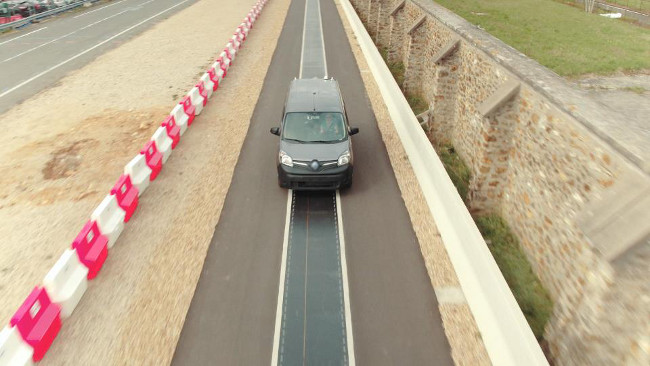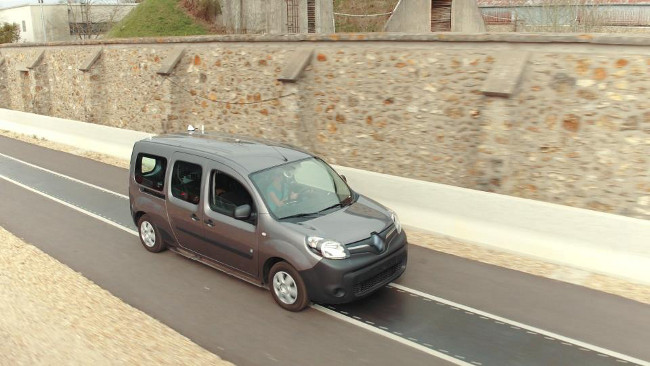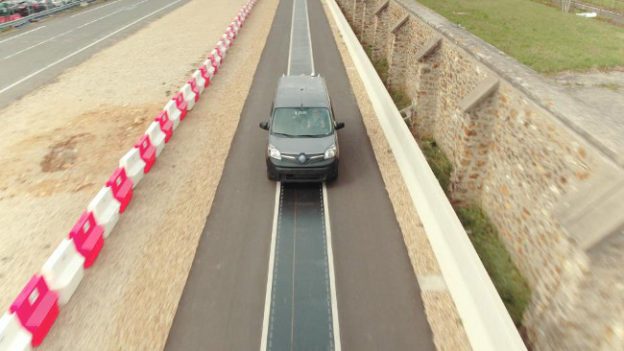
The solution to range anxiety? Renault has demonstrated a wireless charging system allowing vehicles to be charged while driving at speeds of up to 62mph over a special charging track. (source: Renault)
Charging battery-powered devices — from smartphones to cars — is without doubt the most inconvenient aspect of owning an using them. Being tethered to a power point by a cable often means the device can’t be used.
In the case of electric vans and cars, a flat battery at the wrong time could leave you stranded roadside or unable to set off on an important journey while charging is underway.
Range anxiety is certainly the only reason I won’t buy an electric car — we only have one car in our household and it needs to be able to do long journeys as well as short ones.
All this may soon change. On Thursday 18 May 2017, Renault demonstrated dynamic wireless electric vehicle charging (DEVC). This allows an electric vehicle to be charged while driving at speeds of “up to, and excess of” 62mph (100kmh).

Renault Kangoo Z.E. driving along DEVC wireless charging track (source: Renault)
The DEVC system has been designed with partners Qualcomm Technologies and Vedecom. It allows a suitably fitted electric vehicle to pickup charge in both directions when driving over a charging track.
So far, the only charging track available is a 100m strip on the FABRIC project sit at Satory, Versailles, near Paris. Further testing is now planned. But the potential of this system seems obvious.
Motorways and other trunk roads could potentially be fitted with charging tracks, allowing electric cars to be charged during long journeys, extending their range without the need for long pit stops at roadside services. Car parks and driveways could be fitted with charging strips, negating the need for plugin connection points.
These wireless DEVC solutions are being investigated as part of the FeAsiBility analysis and development of on-Road chargIng solutions for future electriC vehicles (FABRIC) project, which is being run by a consortium of 25 partners from nine European countries. The main aim of FABRIC is to conduct feasibility analysis of wireless DEVC as a means of EV range extension.
It’s still early days, but technologies like this leave me more convinced than ever that the future of automotive power will be mainly electric — for both cars and vans.

